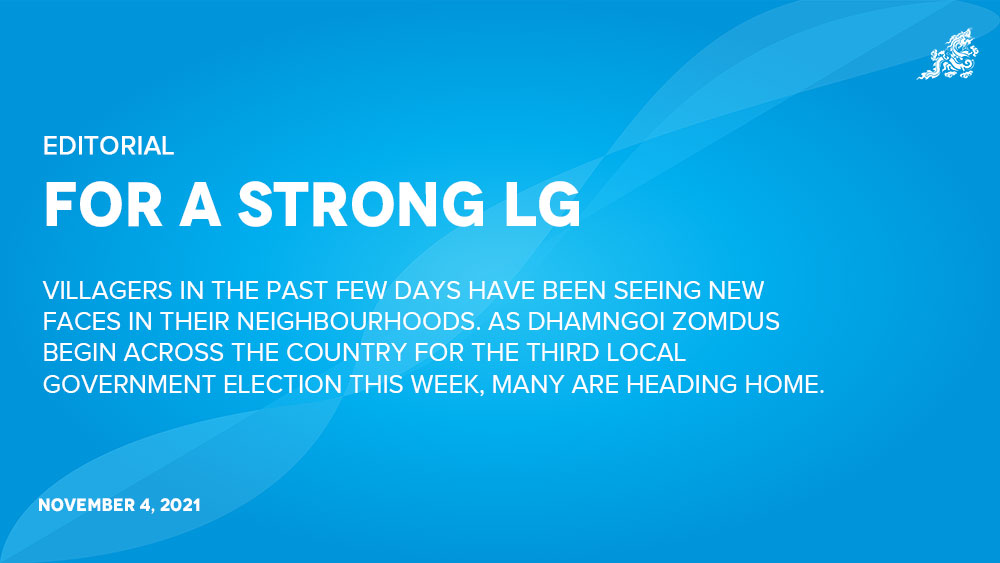Villagers in the past few days have been seeing new faces in their neighbourhoods. As dhamngoi zomdus begin across the country for the third local government election this week, many are heading home.
Some have returned to help nominate their relatives, others boarded free rides on the behest of the aspirants or their relatives to support them.
With more than one aspirant seeking nominations in most chiwogs, the dhamngoi zomdus have become even more competitive than before and crucial in the contest. Some candidates from the chiwog with the largest population in the gewogs believe that their chances of winning increase exponentially if they can secure the nomination. The stakes are raised already.
While the authorities are rigid on the rules to ensure free and fair elections, monitoring or preventing such turnout seems impossible. In that case, the worry is how fair would the election be for those who cannot sponsor rides or gather a crowd to garner support. The only consolation is that from experience we know that not all who take the free rides vote for the sponsors.
The election of qualified and competent individuals as local leaders will no doubt impact the progress and development of the gewogs and thereby the wellbeing of the residents. An equally important factor to the success of local development plans is the placement of capable and adequate human resources.
Local leaders claim that the attempts to strengthen their teams usually end up in a major tug-of-war effort with the authorities.
With the noble concept initiated by His Majesty the King, decentralisation has been one of the top priorities of the royal government. The initiative was aimed at creating efficient administrative machinery at the centre, strengthening the professional and technical capability of the dzongkhags, effectively involving the people in all aspects of development and change, and eventually setting the theme for the political climate.
The success of decentralisation will depend on the quality of the dzongkhag or gewog staff. But are there capable people who would insist on being transferred to the dzongkhags? Or are there organisations that would nominate their best workers for transfer to the dzongkhags?
With the appointment of the right people in the local governments, decentralisation will be a natural outcome. But if there are no people or worse still if wrong people are transferred, the LG offices will grow in size and decrease in productivity, and the entire process will be reversed.
We can take the past as an example for the future. We have had the good fortune of having enlightened leaders who provided a clear overall leadership. Yet many decisions like the choice of roads and bridges or the location of schools and a number of policies can be traced back to the interests of senior officials.
The advantage of the new system is that these decisions can be more transparent and the people themselves will at least have the opportunity to influence them. Those living in the villages know who can best serve them. With many more moving to the villages to vote, in the next few days, the question is, do we have the ability to make good decisions?


